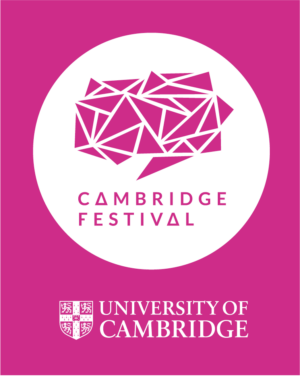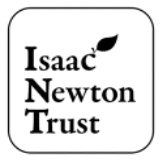| 19 Mar 2024 | 17:00 - 18:30 | Online & S1, Alison Richard Building, 7 West Road, Cambridge | |
- Description
- About the inReach project
Description
Part of the inReach – /ɪn riːtʃ/ project
Convenor
Kelly Fagan Robinson (Department of Social Anthropology)
Panel
- Sian Lazar, Social Anthropology, Cambridge on education, citizenship and activism in Latin America
-
Zerei Tucker, on being a leader of the inReach Youth Summit and his experiences as a current secondary school student
-
Ahlisha Donovan, Social Worker, Hackney Council and parent of a secondary school child
-
Rosie Jones-McVey, Wellcome ECR Fellow, Exeter who has worked with young people in PRUs using Equine assisted methods
- Alex Parton Turner, Cambridge HSPS undergraduate, school communities and policy
- Laraib Niaz, Faculty of Education, University of Cambridge, inclusive education and independent evaluation of the Girls Education Challenge
-
Linzi Roberts-Egan, Chief Executive of Waltham Forest and former Headteacher at a Pupil Referral unit
Abstract
This panel will discuss the ways that education inequalities impact on young people’s bodies, minds and inclusion in the national conversation.
The UN Convention on the Rights of the Child (1989) asserts that all students should have an active role in their education, taking part in decisions about them and directing changes when needed (de Leeuw et al 2020). ‘Pupil Voice’, the agenda which aims to represent young voices in decision-making about them, has been advanced to make this viable. Though the UK’s education auditing body, Ofsted, recently reconfirmed the importance of Pupil Voice representation, children from minoritised groups remain under or unrepresented. As seen in the statistics in the news and in the field over recent years, providing young people with surveys or student assemblies in order to ‘speak up’ without cultivating the skills required to do so can result in children being absent—either literally absent, as with the 1.7 million children who were ‘persistently’ absent from UK schools last year, or metaphorically absent from discourse and dialogue.
As one Head of Schools recently said: “We’re living through unprecedented problems in schools but using the same tools we’ve had for decades, and they’re not fit for purpose.”
It seems that the UK is developing different kinds of young people with different levels of related presence in public conversations concerning their health and educational needs. Experiences of second-class economic citizenship, non-status in cases of recent arrival to the UK or other experiences of poverty/precarity can be traced in/on children’s bodies (Wilkinson & Pickett 2019; Lazar 2013). This not only determines who young people might be in the present, but their understanding of who they have been before, and who they might be in future.
This panel will unpack this complex situation from different angles. We invite educators, students, academics and interested publics to participate in this discussion, followed by the opening of the inReach exhibition and reception.
Details for online attendance will be sent out via Eventbrite.
Event recording (audio only)
About the inReach project
About inReach – /ɪn riːtʃ/
- inside the distance to which someone can stretch out their hand.
- within the capacity of someone to attain or achieve something
- (inversion of ‘outreach’) considers the expertise of those usually closed off from academic and artistic reception.
The term ‘inReach’ signifies any action which reshapes elite institutions as inclusive domains through centrally placing work by people otherwise absent in traditional arts and academic spaces. This series will critically question and therefore set to prove false the too-common trope that certain people are ‘hard to reach.’ By bringing artists, academics, and key local publics together via CRASSH, inReach will amplify the underacknowledged value of lived expertise of socially marginalised people, while also fostering ongoing debates about transience, stigma and inequality in the UK.




